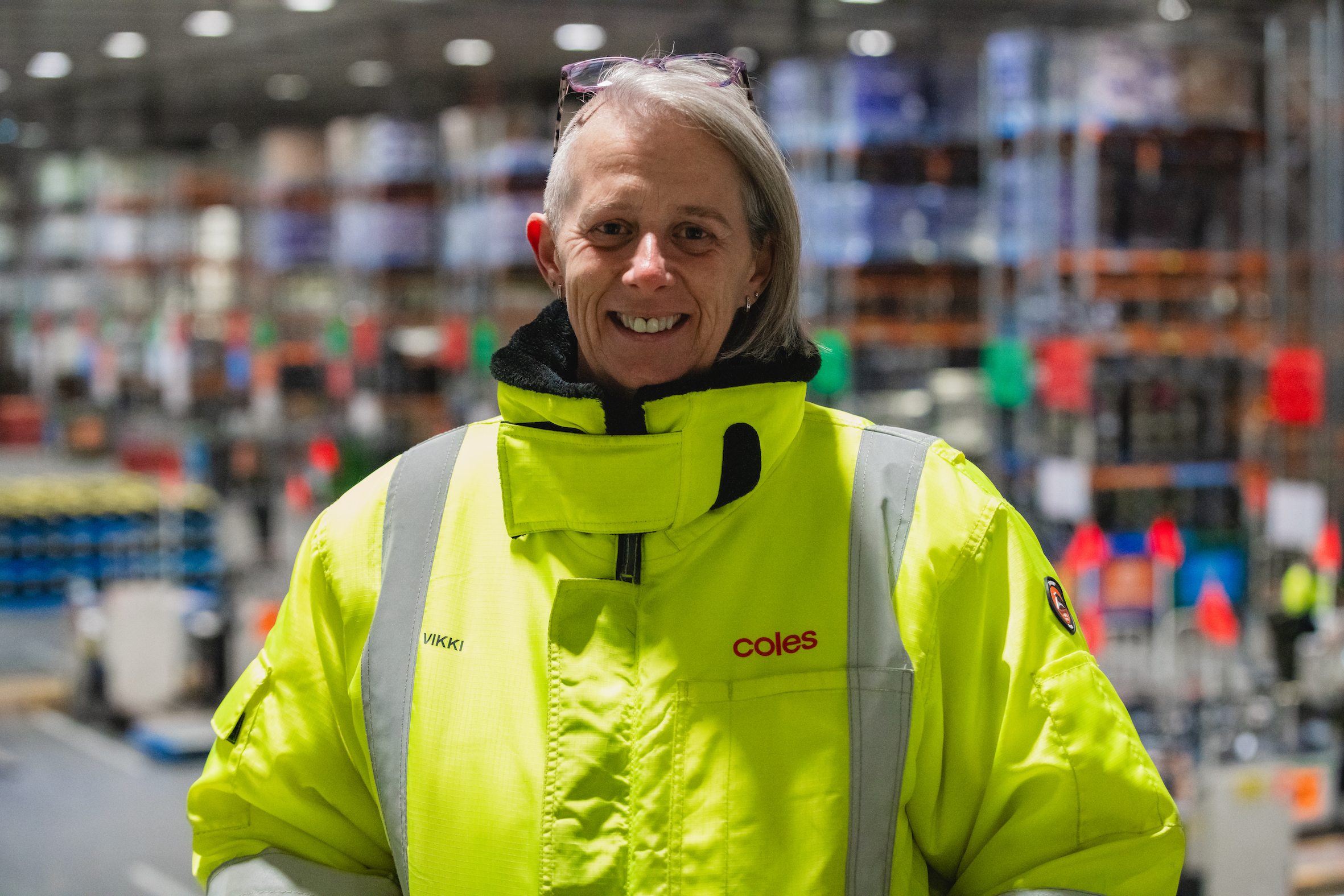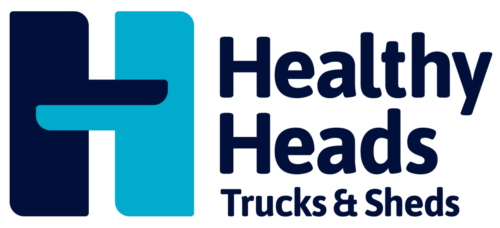
Meet Vikki
R U OK in Trucks & Sheds
Vikki, 52, has worked in distribution logistics for more than 30 years. During that time, she has made it her priority to normalise conversations about mental health and create environments where checking in is a regular occurrence. As Distribution Centre Manager at Coles, she leads a team of 500 people, varying in age and cultural background and each with their own life experience. On several occasions, both herself and her staff have experienced the life-changing power of asking R U OK?
When I came from the UK to Australia, one of the first phrases I heard at work was ‘she’ll be right’. I had no idea what it meant. But I soon learnt that it was a way of shrugging off or dismissing people’s problems. It didn’t sit well with me because I’ve always believed that if your people aren’t running well, then your business can’t run well.
Early on in my career I invested a lot of time in getting to know people. I’d frequently check in with them if I knew they were going through problems at home. Back then, particularly when I was a team manager, I was told I was too emotionally involved with team members and should let them deal with personal issues in their own time, not work time. My view was different from this, because we all have a life outside of work, and if you’re going through something tough, it doesn’t magically leave your mind when you clock on.
When I stepped into leadership positions, I made it my mission to build a supportive culture. I started by being honest about who I was. I openly share that I have anxiety and depression and that I take hormone replacement because I’m going through menopause. I can still do my job, but I must do these things to keep myself well. It often takes people by surprise, but it quickly breaks down the barrier and helps them realise we’re all human – irrespective of our role. No one is immune to life’s struggles.
Over the past year we have implemented two initiatives to normalise checking in at work. Management staff had raised with me that they didn’t have enough time to properly connect with their team because their rosters rarely aligned. We shuffled things around to make sure there was an overlap and introduced a ‘coffee club’. It’s basically an opportunity for team managers to grab a few staff, go for a coffee and have a chat about more than just work. They say it’s helped them get to know their team better, making it easier to recognise when someone might be going through a tough time. We also held our first Town Hall this year, where everyone on shift came together. We talked about the mental health continuum (going from a good space to a not-so-good space), what it means and how to spot the difference. I shared my personal experience and another manager spoke about his gambling addiction and how talking about it in the past six months has helped him work through it. When it finished, several staff came up to me and said it was a powerful reminder that the person next to us at work could be going through something difficult, and we shouldn’t be embarrassed about our struggles.
A conversation with a colleague many years ago has always stayed with me. He was battling cancer, and it was affecting him mentally and physically. He didn’t want to see a counsellor at the time, so I offered friendship instead. We spent an hour a week chatting about what he was going through, so he could get things off his chest. One day I got a phone call from my manager saying this same colleague didn’t seem himself and they asked if I could speak with him because he had a connection with me. I asked him what was going on and he opened up to me about having a plan to end his life that night. Together we called the local hospital, arranged for him to be with someone that night and made an appointment for the next day. I messaged him in the morning encouraging him to go to the appointment. He replied and let me know that he went and will be going back again. We organised for him to have time off work so he could focus on getting better. I checked in with him once a week to see how he was going. When he returned to work a few months later, he walked right up to me and thanked me for saving his life that night.
Next time you’re worried about a work mate, just check in. Don’t overthink it. It’s not about saying the right things, it’s about being available and ready to listen. I was no expert or counsellor, but I knew how to be a friend. The best way to support R U OK? in Trucks & Sheds this year is by adding ‘check in with colleagues’ to your job description – because it’s something we all should do. It can, and does, save lives.




